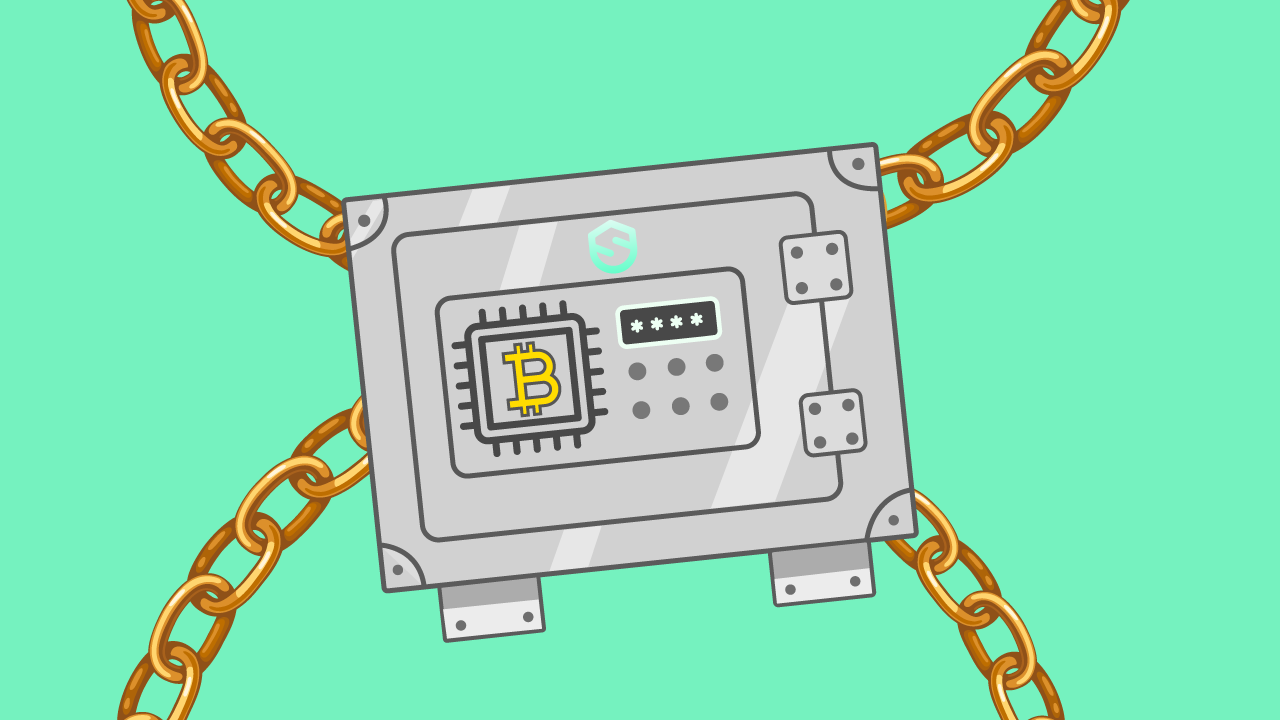Why do hackers target cryptocurrencies? Tips to secure your crypto
With over 420 million cryptocurrency users globally, more than 12,000 cryptocurrencies worldwide, and a projected market value of $2.2 billion by 2026, the digital currency arena is experiencing rapid expansion. Unfortunately, this swift growth has attracted the attention of cybercriminals seeking to defraud unsuspecting individuals. In this article, we'll explore effective strategies to safeguard against crypto scams and ensure a secure crypto exchange experience.

The Emergence of Cryptocurrencies in the Modern Era
Since the advent of the first decentralized cryptocurrency, Bitcoin, accessible to the general public in the 2010s, it quickly gained prominence. The idea of paying with a virtual money equivalent was an attractive innovation due to its potential for reduced transaction costs, increased financial inclusivity, and improved security and transparency.
Most cryptocurrencies operate on a blockchain-based system, a network of nodes that enables decentralization. Blockchains introduced a high level of transparency by making all transactions and wallet balances publicly visible. Simultaneously, individuals behind transactions or crypto wallets maintain their anonymity, enhancing privacy compared to traditional bank transfers. Operating in such a way, the crypto exchange system can provide much more privacy than a typical bank transfer.
With favorable prospects ahead, alternatives to Bitcoin expanded the virtual payment ecosystem. This soon resulted in transaction volumes exceeding the blockchain’s capacities.
Why Cryptocurrency Draws the Attention of Hackers
The transparency of transactions and enhanced privacy features are attractive aspects of cryptocurrency payment systems. However, these very features are often targeted by hackers.
Cryptocurrency attacks can have large payouts
Cryptocurrency traders and wallets, given the substantial market capitalizations of major players like Bitcoin, Ethereum, and Tether at $330.6 billion, $152.6 billion, and $68.2 billion, respectively, are appealing targets for hackers. In 2022, crypto hackers stole a staggering $3.8 billion, according to data from Blockchain analytics firm Chainanalysis.
In September 2022, malicious actors exploited a vulnerability in private keys generated by the Profanity app to pilfer $162.5 million from cryptocurrency market maker Wintermute's hot wallet. A hot wallet refers to an online cryptocurrency wallet facilitating transactions between the owner and others.
Cryptocurrency companies may be more vulnerable to cyber attacks
While the concept of cryptocurrency dates back to Digicash's creation of eCash in 1990, it did not enter the mainstream until Bitcoin's introduction in 2009. With around 100 new cryptocurrencies minted daily, aspiring "cryptopreneurs" often prioritize launching their cryptocurrency over securing their ventures. Even larger cryptocurrency companies may lack sufficiently advanced cyber defenses to fend off hackers due to the industry's rapid growth.
In January of the current year, it was disclosed that the collapsed cryptocurrency exchange FTX had suffered a $415 million theft by hackers. This loss was identified during recovery efforts, with the stolen cryptocurrency comprising approximately a tenth of the assets to be recovered.
Cryptocurrency transfers cannot be reversed
Cryptocurrency transactions occur on a decentralized network, rendering them irreversible and immutable. The blockchain's immutable nature prevents data alterations within the network and enforces irreversible transactions. Digital currency protocols, designed by cryptocurrency companies to enable merchants to accept digital currency without chargebacks, further solidify this irreversibility, preventing fund cancellations.
Consequently, victims who fall prey to hackers' schemes are unlikely to recover stolen funds. Exploiting this desperation, hackers have prompted the U.S. Federal Trade Commission (FTC) to caution cryptocurrency owners against trusting individuals or entities offering cryptocurrency recovery services. These malicious actors promise to return lost assets but often demand fees or financial information, leading to further victimization.
Tips to secure your crypto wallet and transactions
Given the irreversible nature of crypto transactions, robust cybersecurity measures are essential to safeguard your cryptocurrency funds. Here are some guidelines to secure your crypto wallet and transactions:
- Utilize Strong Passwords: A strong password, encompassing at least eight characters with a mix of uppercase and lowercase letters, numbers, and special characters, is your first and foremost defense. Always use distinct passwords for each account.
- Implement Multi-Factor Authentication (MFA): MFA enhances security by requiring an additional piece of information beyond a password for login. This may involve push notifications to your mobile device or biometric data.
- Beware of Phishing Attacks and Social Engineering: Human error is the primary enabler of cybercriminals. Stay informed about circulating phishing and social engineering threats to reduce the risk of falling victim. Never click on suspicious links or download unsolicited files.
- Avoid Public Wi-Fi: Public Wi-Fi is a favorite target for hackers conducting man-in-the-middle attacks. Refrain from using unsecured public Wi-Fi, especially when accessing crypto wallets or conducting exchanges.
To minimize the risk of hackers seizing your crypto assets, maintain vigilance against suspicious online activities and ensure a secure internet connection at all times. This is where a VPN comes into play.
The Role of a VPN in Enhancing Cryptocurrency Security
Securing your internet connection with a VPN adds an extra layer of security and privacy to your online traffic. When a VPN is active, it encrypts your data traffic, rendering it indecipherable to potential eavesdroppers. Additionally, a VPN establishes an encrypted tunnel for your internet traffic between your device and the VPN's server, particularly valuable when using public Wi-Fi. A reputable VPN, such as SYSVPN, also masks your true IP address, enhancing online privacy and reducing the risk of third-party surveillance.



